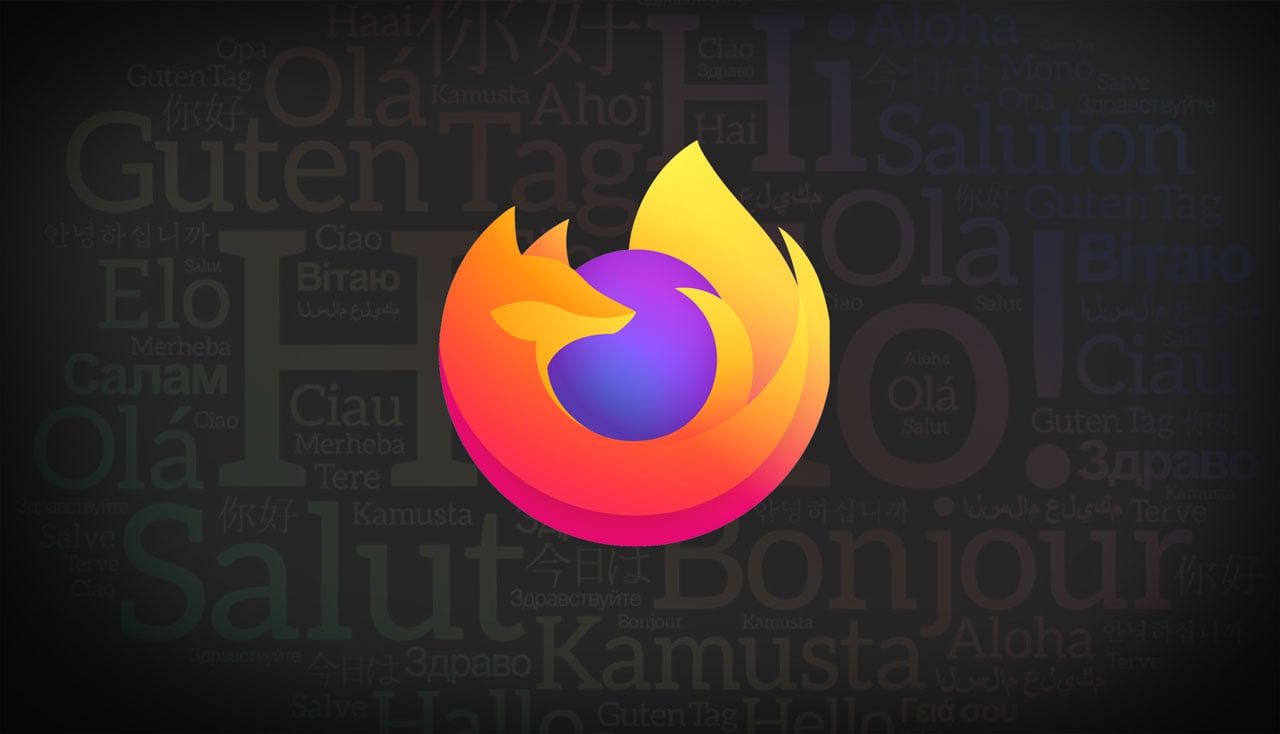Adblockers stop publishers serving ads to (or even seeing) 1bn web users - Press Gazette
-
The web has almost always been unusable without an adblocker. Ads today are less malicious, but more insidious. Clicking the wrong ad in 2003 would brick your computer. Clicking the wrong ad today means you'll have to cancel a credit card after your personal data is compiled and sold on the black market.
Nothing new. Ads don't fuel a free internet. They fuel a business model. The free internet is fueled by the time and donations of kind, dedicated people.
You store your credit card in your computer? If browser credit card management isn't secure enough to avoid that attack you shouldn't be using it.
-
They call it "dark traffic" - ads that are not seen by tech-savvy users who have excellent ad blockers.
Not surprised that its growing. The web is unusable without an ad blocker and its only getting worse, and will continue to get worse every month.
Oh no.

-
No point if you have a network in the 10.0.0.0/8 IP range. There is a bug where they will randomly stop serving DNS to IPs outside of their subnet
Unless I’m misunderstanding, that doesn’t sound like a bug at all. Outside of a few specific circumstances, devices shouldn’t communicate with anything outside of the given subnet mask. Rejecting traffic outside of that subnet mask is exactly what it should do. And why wouldn’t your pihole be in the same subnet (or at least be included in the subnet mask) for the LAN? You can have the pihole’s IP address be whatever you want, so give it an IP in the same subnet.
-
The use of the term "Dark traffic" here is to paint the use of ad-blockers as something nefarious. Don't use it, fuck these people right in their stupid mouths.
I propose using the terms "clean traffic", for ad-blocked website traffic, and "dogshit traffic" for everything else.
Maybe we could turn it around: adblockers are tools that block ads and other kinds of dark traffic such as trackers and malicious scripts.
-
"dark" as in "not visible". Adblock users can't be tracked (or at least not as easily), hence they are not visible to the ad companies. "Dark", in this instance, is not a derogatory term.
"Brutal" is, though. So I totally agree with you there. Ads are the brutal thing nowadays.
The way you word things matters. How many polls have shown the difference in opinion on 'obamacare' compared to 'affordable care act?'
-
Gemini looks cool, but I wonder if Gemtext isn't a bit too simple. I think the ideal format would be to go back to the idea of "hypertext", without the CSS and Javascript.
-
The way you word things matters. How many polls have shown the difference in opinion on 'obamacare' compared to 'affordable care act?'
That is not wrong. But interpreting "dark" as "evil" is just wrong in this context.
-
They call it "dark traffic" - ads that are not seen by tech-savvy users who have excellent ad blockers.
Not surprised that its growing. The web is unusable without an ad blocker and its only getting worse, and will continue to get worse every month.
“The growth of dark traffic undermines the ability of publishers to fund the production of quality content, or even operate as a business. We must recognise users are not the main driver causing this.”
And Scott Messer, founder of publishing adtech consultancy Messer Media, added: “Dark traffic is unlike anything we have seen before. It’s demonetising publisher content at scale without user consent.
Are they trying to present it as if poor innocent users need to be protected from the vile ad blockers?
-
Okay I checked out Gemini. I love the vibes, but the amount of dead links just in the quick start guide makes it hard for me to even try to get into it
-
The web has almost always been unusable without an adblocker. Ads today are less malicious, but more insidious. Clicking the wrong ad in 2003 would brick your computer. Clicking the wrong ad today means you'll have to cancel a credit card after your personal data is compiled and sold on the black market.
Nothing new. Ads don't fuel a free internet. They fuel a business model. The free internet is fueled by the time and donations of kind, dedicated people.
There was a time in the 90's where ads were mostly banners, and that was fine; google's text-only ads were completely acceptable.
But that didn't last long - it went downhill with the proliferation of popups, especially the nefarious kind which created even more popups or tried to stop the user from closing them, and usage of dialog boxes.
And whoever was the first person to add sound to an ad, i wish you and your entire family tree that your genitalia translocate to your forehead.
-
the AIs will just start their own circle jerks
Zombie internet!
-
They are so short sighted to. Ad blocker help advertizers. It allows sites to fill up sites with ads to the point of being unusable while not losing 100% of traffic. That keeps these site relevant enough that old people who don't have ad blockers end up there too when they follow links or google ranks a site high because it has traffic.
If they got rid of all ad block somehow they would have to decrease the ads because I wouldn't use the web. Or online communities would be way more conscious of the ad level of the things they link to.
The tech community is pacified into not taking action against the polluters by our adblockers because we don't see the egregious ads and so we don't fight the good fight for the user.
-
The fbi suggests using an ad blocker. Guess what an ad blocker is as important as an antivirus.
Malvertising has become pervasive enough that adblocking is starting to become a necessity from an IT perspective
-
It's far far worse than American TV. TV commercials are a scattershot hope that you show the ad to 2 million people and 10,000 see it and buy your product.
With Google fingerprint tracking, advertisers are selling hyper-targeted ads so a company buys only ads to show to the right 10,000 people over and over. It's a literal dream for advertisers. But it's a fucking dystopian nightmare for us.
With Google fingerprint tracking, advertisers are selling hyper-targeted ads so a company buys only ads to show to the right 10,000 people over and over. It’s a literal dream for advertisers. But it’s a fucking dystopian nightmare for us.
The hilarious thing is if you turn off your adblocker (or use a service/device that doesn't support it) and pay attention to what is being advertised to you, a lot of it is wildly irrelevant. They'd probably have better targeting by following the old TV Ad model than whatever the heck is happening with targeted web ads nowadays. My wife watches a lot of livestreams on twitch and any ads that aren't for a game just consistently seem to be wildly irrelevant despite being "targeted" or it's even worse when she's listening to Spotify and the ads are so consistently for products or services we would never have a desire to use
-
The use of the term "Dark traffic" here is to paint the use of ad-blockers as something nefarious. Don't use it, fuck these people right in their stupid mouths.
I propose using the terms "clean traffic", for ad-blocked website traffic, and "dogshit traffic" for everything else.
Goodput vs shitstream.
-
Reminded me of Flattr
 is it FOSS ?
is it FOSS ?Web Monetization is a proposed standard in W3C, so an open standard
-
There was a time in the 90's where ads were mostly banners, and that was fine; google's text-only ads were completely acceptable.
But that didn't last long - it went downhill with the proliferation of popups, especially the nefarious kind which created even more popups or tried to stop the user from closing them, and usage of dialog boxes.
And whoever was the first person to add sound to an ad, i wish you and your entire family tree that your genitalia translocate to your forehead.
Ads in the 90's and 00's would just layer toolbars onto your browser. Is still have a a nervous twitch when I see a thick toolbars or animated cursors.
-
You either have a mobile, a Linux device or Windows, which has defender by default. The amount of virus fir Linux is relatively low, and mobile...most antivirus are redundant for mobile anyway, so you're set.
I also have a mobile Linux device.
-
My kid hasn't ever seen an ad on any streaming service or any web page, ever. And I block ads via DNS. We don't have any kind of live TV service or cable so they literally have just never seen any ads, ever.
Sometimes if we're out at a restaurant, some TV is playing live content and an ad runs. My kid is shocked like it's the first time he ever ate sugar.
Glad I can keep that toxic trash out of my house and out of his life.
Unrelated, but this just brought back memories from long ago when I was a kid and used to watch the advertising channels on purpose. Endless stream of useless gym equipment and weird kitchen tools; they painted such a bizarre and surreal world full of repetition, forced plastic smiles and all sorts of almost otherwordly things that had nothing to do with reality. It was fascinating, almost like watching something of the fae folk
-
Exactly, adblockers don't block a static <div> on the page with some text, an image and a link. It's only the user-tracking, obtrusive ad-networks they block. Every old-school form of advertising didn't track users and did just fine. Even today, billboards are priced based on the amount of traffic on the highway, not based on checking inside each car and building a profile on each driver (though I wouldn't put it past them trying to figure out how to do that soonish).
God, I can just see the wet dreams of an advertising exec now. If an australian bloke can replicate million dollar systems with $100, the advertising companies can surely wank out the money for license plate readers a quarter mile ahead of their billboard with good identification. The new electronic billboards already switch what ad they're showing every half minute or so now, and I bet they could do what ze big boiz do with the auctioning of ads.
I think right now most of the US doesn't allow random API access to license plate and registration data, but I really have no idea... How much do you think companies would
bribepay for some laws to be changed about that?






